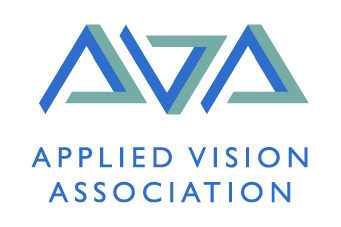


With support from the AVA Cambridge Research Systems Award, I attended the 38th European Conference on Visual Perception (ECVP) in Liverpool, UK, 23rd-27th August 2015.
I presented a paper on the ways we measure visual thresholds in children, which was incorporated into a symposium titled ‘Visual perception research for use in the vision clinic’. The paper was based on data that I collected during my PhD, but had not previously had the time to analyse properly. The conference provided me with a firm deadline for analysing the data, during which time I developed a collaboration with Dr Pete Jones and Dr Tessa Dekker. As part of this, I learnt how to perform Monte Carlo simulations to assess the effects of attentional lapses on the thresholds of a simulated observer.
Participation in the symposium was a valuable experience, as I presented alongside a range of speakers who I had not met previously, but with whom I shared common research interests. The symposium also encouraged me to think more broadly about the clinical implications of my research. For example, my research suggests that clinical tests of visual abilities that employ adaptive staircases may underestimate the patient’s sensitivity when they are inattentive. My talk was well-received, and sparked many discussions with others interested in the measurement of thresholds in children. These discussions suggested some extensions of my work – such as extra simulations to run in order to probe the effect of attentional lapses on different threshold estimation techniques.
My research spans both visual perception and autism fields, and so I attended a range of interesting oral presentations and poster sessions, including those covering visual perception in typical and atypical development. I find it particularly useful to attend vision-specific conferences, because they keep me up-to-date with the most cutting-edge paradigms, which have the potential to be applied to autistic populations.
Another benefit of attending the conference was to attend a pre-conference workshop, ‘Introduction to PsychoPy’. This interactive course demonstrated how easy it is to build experiments with little programming knowledge, which will be useful when teaching experimental design to students, and when asking students to design their own projects.
I used the conference both to meet up with researchers who I have already met, and to form new connections. In sum, the conference was highly beneficial to my research. Presenting at the conference motivated me to analyse data collected a few years back, and has left me in a good position to prepare the results for publication. As it was the first time I had presented the research, the conference provided a useful way to gauge the interest of other researchers. I have also formed new contacts with people who are interested in this research area, who could provide further advice on my research. As a relatively new post-doc, attendance at the conference also gave me more confidence in presenting my research, and provided important networking opportunities. I am therefore grateful to the AVA and Cambridge Research Systems for helping me attend this conference.